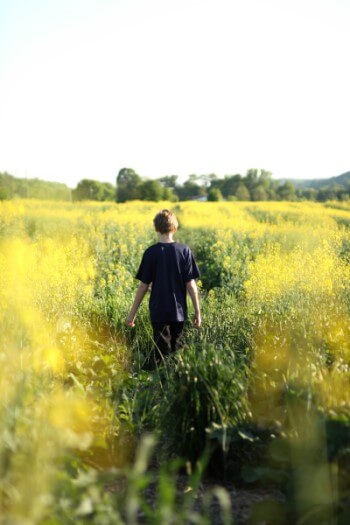
Physical grounding gives us time to pause and helps reduce our emotional response.
We have been talking about the use of coping skills to better regulate our emotions. When we are not overwhelmed emotionally, we are better able to handle problem solving in the moment or move forward from the difficult situations we find ourselves in. Grounding skills are a type of coping skill that allows us to focus our attention away from what is bothering us most. Last week I introduced physical grounding techniques. Physical grounding skills work by using our senses to give us time to pause that helps to reduce our emotional response. Earlier I also talked about mental grounding skills where we change our thoughts through mental exercises (read more about those here). The purpose of both is to grab our attention and give ourselves a break from the thoughts that are running through our heads.
Physical Grounding
In the last post, we began the list for physical grounding skills (If you missed the last post you can find it here). As you read the list below, remember to think about how useful each would be for you personally and when a skill may be helpful. Some are more helpful when your emotion is anger and others might help with sadness or fear.
Walk slowly, notice the feel of each step, pay attention to the roll of your foot or how it touches what you are walking on. You can add words while you walk like “left,” “right.” You can make it more soothing by saying coping statements with each step or even breathe in and out with each footstep. Increase or decrease your pace.
Wherever you are, simply focus on your breathing, notice each inhale or exhale, or like when walking, you can focus your attention on a coping word or a phrase such as “breath in, breath out” or “I am calm”.
Clench and release your fists. Really build up the tension, putting all your focus in your grip and then release, feeling the muscles relax.
Grab tightly onto a chair, holding as hard as you can, then focus on the release of tension as you let go.
Dig your heels into the floor, pushing your weight onto the ground.
Smell something you like, something that really draws your attention. Try an aromatherapy scent. A quick search showed that lavender, lemon, jasmine, and rose can all help to reduce tension. Light a candle you can smell or think about the smell of something you enjoy, like fresh baked cookies.
Bite into something sour like a lemon or lime or a sour candy to draw your attention. Something spicy may work as well. Focus your attention on how your taste buds react to the intense flavor.
You can also savor something that you enjoy like a piece of candy, favorite food, or even take just a piece of something like a raisin and really pay attention to chewing and enjoying it.
Look at pictures of people you care about. Find a picture book of nature.
Write it Down
When we are emotionally charged it’s hard to remember new skills, so having them written down and available will help you to utilize them. Sometimes to help with an emotion like anger we need the thought, “I need to use a coping skill,” and that’s the best we can do if we can’t remember a coping skill. Modify the suggestions so that they make sense to you and find a place to record them so they would be meaningful when you need them. We’ve created a pdf, Grounding Skills, you can download and put on your fridge or somewhere convenient. Take a screenshot or come back here to remind yourself, anything that will help you to remember to utilize the different skills or techniques available. Don’t forget to add mental grounding skills to the list (find those here and here).
Use Physical Grounding Skills with Your Kids

Physical grounding skills help kids remember what to do when their emotions are escalated.
Grounding skills are not just for adults. Kids can find benefit in the activity as well. Kids will learn best when they are given the activity to use while they’re in emotional distress (the same is true of adults). That will help them to remember better what to do when their emotions are escalated. Having signs posted on boards or walls, especially with pictures, is also helpful.
Along with the above grounding skills here are a few more that kids can relate to (you may even like these too).
Stomp your feet. For more sensory you can have them stomp empty cans.
Jump up and down.
Roll a fuzz ball or pipe cleaner in your fingers.
Tracing figure eights “8” or other connected symbols with your fingers. You can have them trace with a pen or pencil or other type of object.
Blow bubbles or blow up a balloon. This gives them something physical to look at while they are trying to calm or distract themselves.
Chew gum. This adds a flavor to their mouth to focus on as well as the activity of chewing.
Give your child different ones to try and have a list with pictures for them to look at and use. Have them readily available. Make sure to do the techniques with your kids, especially at first. Be helpful and reminding, that way they learn by you teaching them and can even begin to notice, for themselves, when they need to use the different skills. You should use your coping skills where your child can see and tell your children that you need to calm yourself too. This teaches them by observing you do it, which is the best way kids learn.
Need More Help
Coping skills of all types are helpful ways of dealing with our emotions. Mental illnesses like depression, generalized anxiety, trauma, eating disorders, OCD, etc, need more help from a qualified mental health professional. If you need more help, we’re here for you. To schedule a counseling appointment, call us at 218-366-9229 (Park Rapids) or 218-444-2233 (Bemidji). For those interested, I offer Christian counseling out of the Park Rapids office. Please let our office support staff (and me) know that you are interested in Christian counseling. Please check out our staff bios here.
Blessings,
Diane Cerven, LPCC
Want to read more about distraction skills and mental grounding skills?
